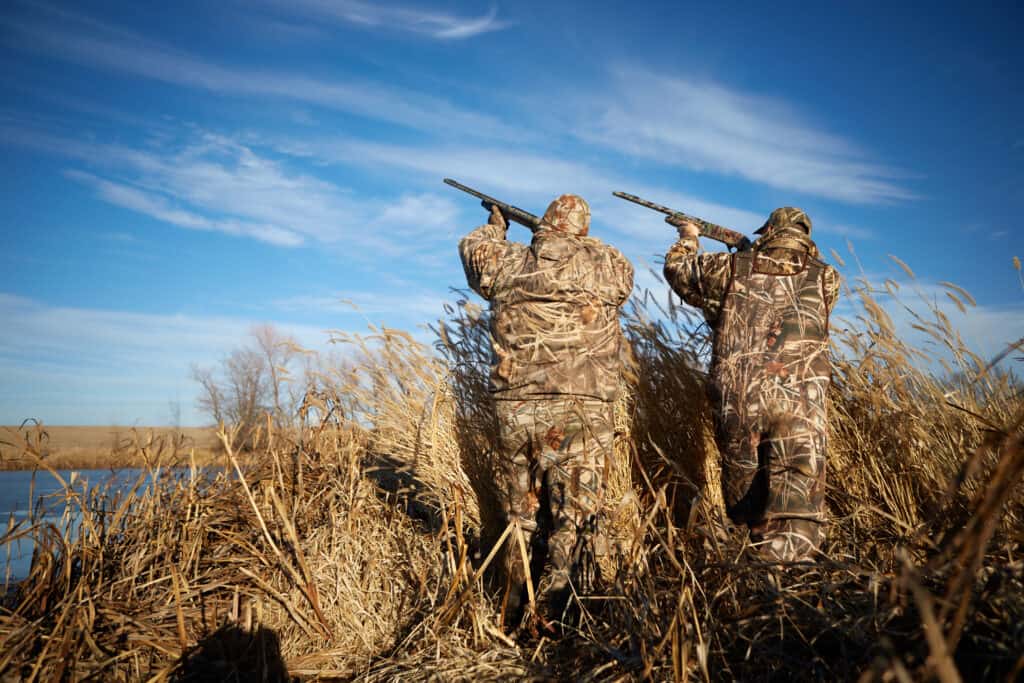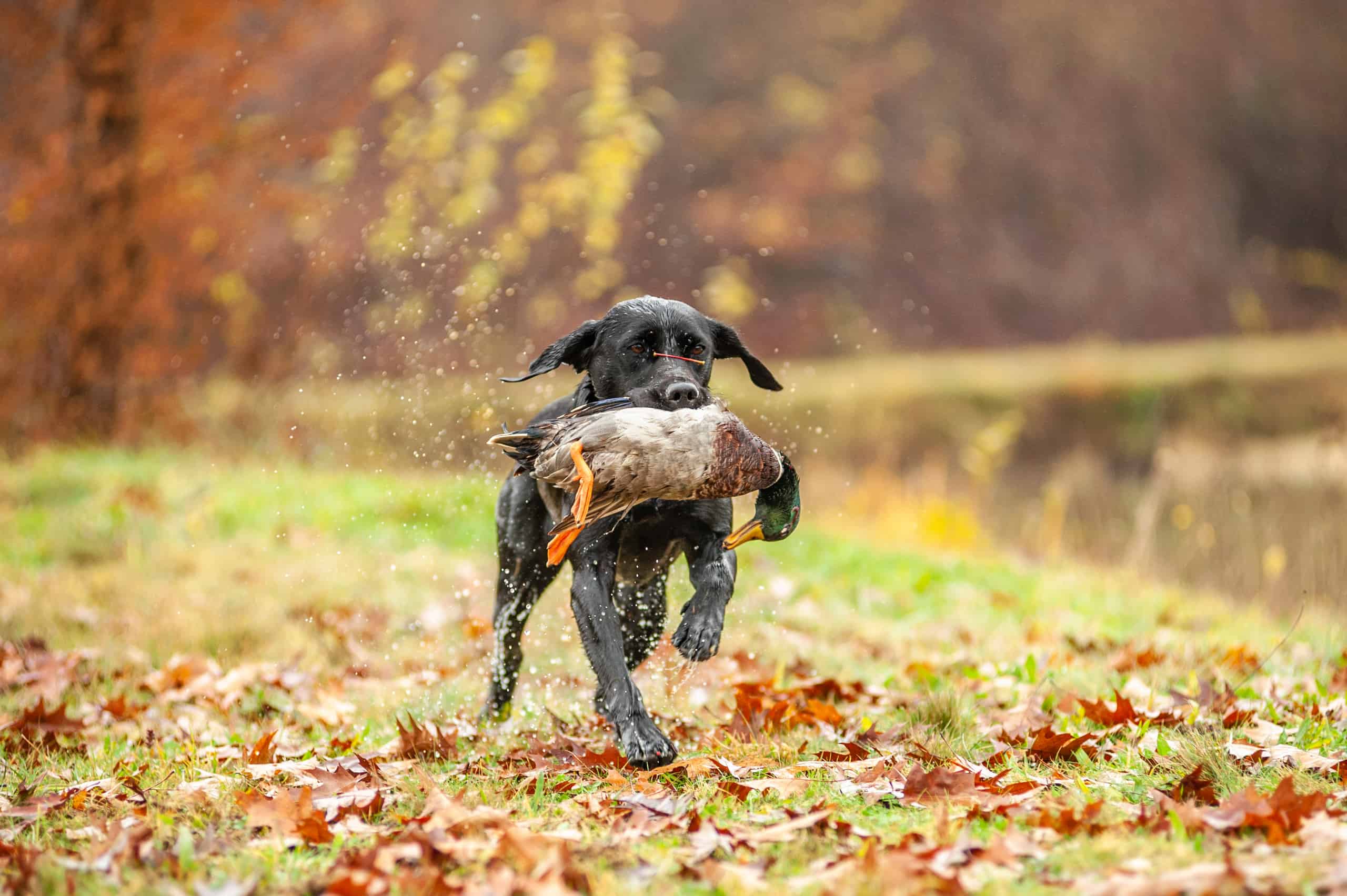Duck hunting is a hobby across the state of Wisconsin. However, this sport must be controlled. If hunting is left open, there is a high likelihood of depletion. Ducks may soon become extinct, and the natural habitat may be destabilized. This would have negative impacts, as these birds are an important part of the ecosystem.
Wisconsin is one of the best places to hunt ducks. If you are interested in this hunting season, consider the southern side of River Road. This is close to the du Chien Prairie. It is a perfect duck puddle, ideal for hunting.
This region stands out because of the marshy land. The surrounding agricultural land is also a great attraction to the birds.
But hunting ducks is not a straightforward process. You cannot decide to hunt these birds on a whim, lest you get into trouble with the law. To hunt ducks lawfully, you need a game license. Additional stamps are needed depending on the type of bird you are hunting.
Highlighted below are important details every Wisconsin duck hunter needs to know!
Duck Hunting Season Dates in Wisconsin
The state’s duck and goose season starts and closes at specific times. Such regulations are implemented to help maintain the population of specific duck species. The 2023 duck and goose seasons calendar in Wisconsin is out.

Duck hunting season in Wisconsin starts in September.
©CLP Media/Shutterstock.com
Duck hunting season begins in September. Each zone has a specific rule that guides the hunting process. There are limits on how many birds a hunter can get in a day.
These details were part of the 2023 migratory birds guideline framework. It has been presented to the Natural Resource Department. This board approved the package in a unanimous agreement on April 12th during their Madison meeting.
The regulations were based on data generated scientifically. The data from public participation was also considered. More than 500 comments from the public were used to help write the report.
Anyone who has hunted in the region below can identify with the 2023 rules. They are not very different from previous seasons. First, the board divides the geographical region into different zones. These include the Open, South, and North Waters.
When Does Duck Hunting Season Start in Wisconsin?
The duck hunting season in Wisconsin depends on the region. The beginning and end of these seasons are as follows:
First Hunt Season
This season starts in September. The target birds are Canada goose, which can be hunted from September 1st to September 15th. This is followed by early teal season, from September 1st to September 9th.
The next season from September 16th to September 17th is the youth waterfowl hunting season.
Second Hunt Season
The second hunting season marks the regular duck season, which opens from September 23rd to November 21st for the North Zone. The South Zone hunting season begins on September 30th to October 30th for the first split.
The second split ends on December 3rd. The last zone is the Open Water which begins on October 14th and ends on December 12th.
Hunters need to know the specific zone dates. This ensures that they take advantage of the hunting seasons. It also makes sure no one hunts out of the legal jurisdictions.
The season for regular goose hunting starts on September 16th, regardless of the zone.
Daily Bag Limits and Possession Limits
It is important to pay attention to dates to take advantage. Besides the zonal dates, hunters also need to understand the limits. Even when you hunt on the right dates per zone, there is a limit to the number of birds you can get at any given time. Usually, dates are given per day.
The limit depends on the breed of bird/ duck. Generally, the daily limits are as follows:
- Not exceeding 4 mallards – 2 being hens
- Not more than wood ducks
- Not more than 2 canvasbacks
- Not more than 2 redheads
- Not more than 2 black ducks
- Not more than 1 pintail
- Not more than 3 geese
The regulatory body also made changes to incorporate open water boundaries. Currently, it also includes the following:
- Little tail points
- Floating cattail mats
- Rooted vegetation
- Green bay longtail
Can You Duck Hunt in Wisconsin?
Yes, Wisconsin is popular for duck hunting.
Resident’s enthusiasm and dedication to hunting waterfowl make the sport one of the most popular in the region. Hunters go out of their way to get the relevant licenses to be part of this sport.
However, to hunt ducks successfully in this state, you must adhere to specific legal rules. You need the following:
- Small game license
- Federal & state waterfowl stamps (Note that stamps are needed for hunters aged 16 years and above)
- HIP certification
- Federal migratory-bird stamp (This applies to those hunting waterfowls. It must be available in hard copy)
You will need a waterfowl stamp if you intend to hunt waterfowl. All these licenses and stamps are government issued. This is the only way to prove legitimacy.
Besides the stamps, hunters must also adhere to specific hunting rules. These revolve around:
- The hunting style
- Tools used
- Method of collecting the catch
- General restrictions
Ammunition and Guns
When hunting migratory birds, ducks included, you can use guns. However, it is considered illegal to hunt as follows:
- Hunting with weapons other than shotguns, which must be fired from the shoulder. You can also hunt with a crossbow, bow & arrow, and falconry
- Using guns exceeding 10-gauges
- Trapping the birds in a trap, snare, or net
Other hunting tricks to stick to include:
- Never hunt with a shotgun that has a three-shell capacity. The only exception is when the gun has a one-piece plugged filler that is impossible to remove unless the gun is taken apart.
- Don’t use or possess a toxic or lead-filled shot when hunting ducks, brants, coots, snipes, geese, and moorhen.
- You shouldn’t use or possess lead or toxic shots when hunting on land managed by the DNR.
Types of Boats, Vehicles, and Structures
The following is considered illegal when hunting ducks and other migratory birds:
- Hunting from docks, breakwaters, dams, piers, or other man-made structures unless you have a disability permit.
- Hunting from a sink box.
- Hunting from a moving boat (with the exception of paddle boats. Poles and oars are also exempted. If hunting from a sailboat or motorboat, ensure the engine is completely switched off.)
- Occupying blinds on government land/ property during the hunting season.
- Using unmanned air, motor-driven, or unmanned water devices, including drones and aircraft, to rally the birds to a hunter’s range.
Illegal Equipment
Whenever you hunt ducks and other migratory birds, use the right devices. Some decoys are illegal to use. These include:
- Decoys that are more than 200 ft from the hunter’s cover
- Decoys that are put in water at least an hour before shooting
- Decoys that have remained in water 20 minutes past the close of shooting hours
- Decoys in water that are unattended
- Live decoys, no matter how far away they are from hunters
Hunters should note that live, captive, and tamed ducks are removed 10 days continuously before the hunting season begins. They remain enclosed to minimize the audibility of their calls to other migratory wild birds.
It is also illegal to hunt when possessing:
- Imitations or recordings of bird calls
- Electronic bird calls
General Restrictions to Watch Out For
These restrictions are mostly about hunting limits and retrieval limits. Adhere to the daily bag limit discussed earlier in this text.
For retrieval, the following legal rules must be followed. Don’t cripple or kill game birds without attempting to retrieve them. All cripple birds, whether retrieved or not, are included in the hunter’s daily bag. Therefore, pursue the crippled bird immediately to prevent escape.
For retrieving in open water, pursue birds that fall into the water immediately. To retrieve it in a refuge/ close region, you can use a dog to help you retrieve it unless it is prohibited.
Do not leave your hunted birds with another hunter unless properly tagged. The tag must capture the hunter’s address and signature. It should also capture the name of bird species and the number of birds shot.
If the wounded bird is in your possession, kill it immediately. It must be included in the daily bag of the hunter.
Never ship any of the hunted birds, unless properly marked. The details to include are:
- Name of sender
- Name of recipient
- Package details capturing the numbers of each bird species.
Hunters should understand all restrictions and possession requirements during the duck hunting season in Wisconsin. Note that ignorance is not an excuse when on the wrong side of the law.
Thank you for reading! Have some feedback for us? Contact the AZ Animals editorial team.








